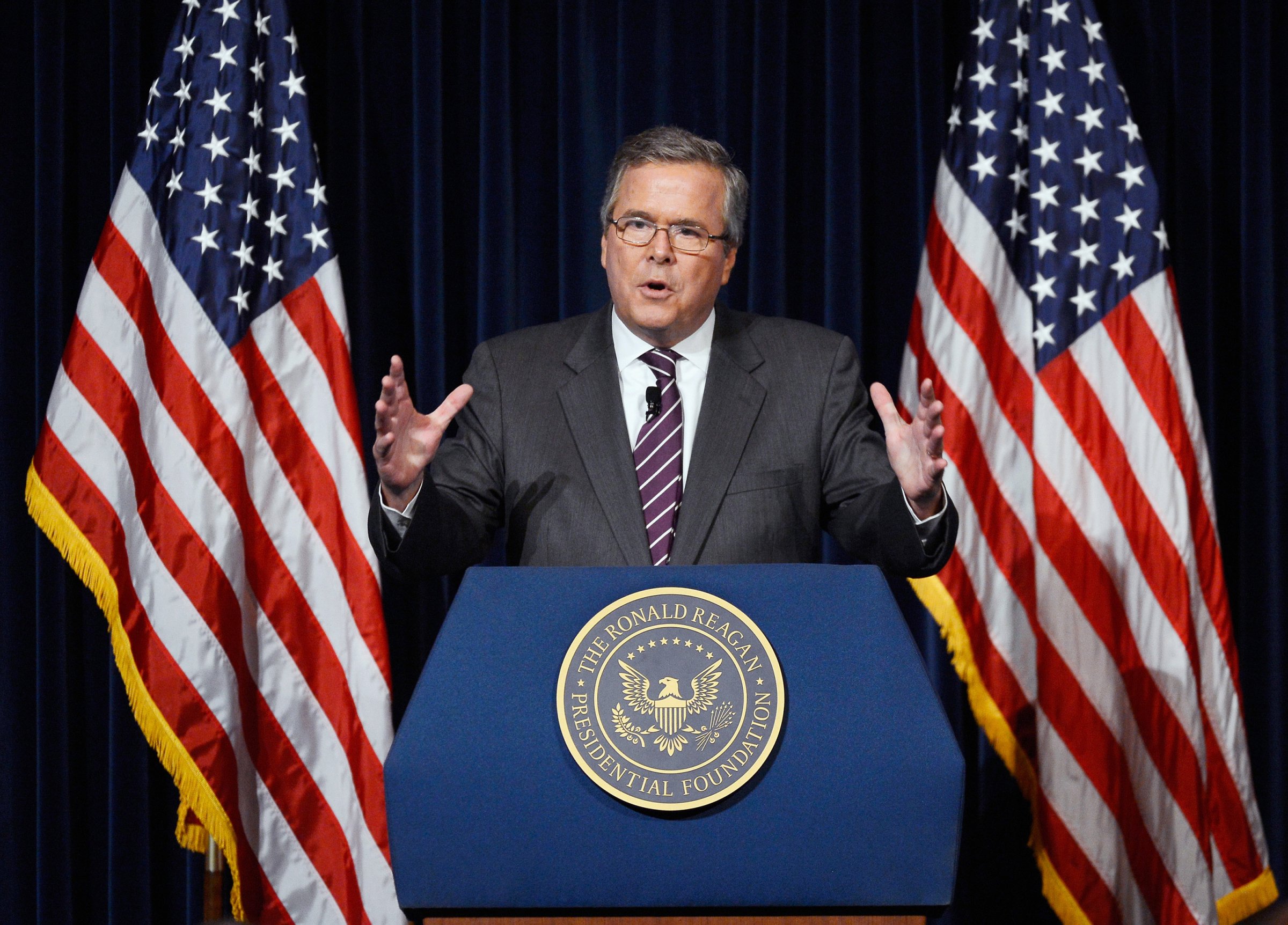
The prospect that Jeb Bush will run against Hillary Clinton certainly has the hoi polloi waving the Constitution. It forbids both the Congress and the States from granting any title of nobility. Yet John Kass, writing in Chicago Tribune, is likening our politics to “Game of Thrones.” In 2008 Nicholas Kristof fretted that the presidency might be kept “in the same two families who have held it since 1989.” Now Maureen Dowd is warning that the Bushes and the Clintons “are going to make the Tudors and the Plantagenets look like pikers.”
Me, I’m not so sure. No doubt the Founders feared a king. They’d tasted oppression under Mad George III, and they knew what they were doing when they inked the national parchment. The ban on titles of nobility passed unanimously in Philadelphia. “It appears to be incompatible with the principles of our national Constitution to admit the introduction of any kind of Nobility, Knighthood, or distinctions of a similar nature, amongst the Citizens of our republic,” George Washington wrote, referring to the Articles of Confederation, which also banned titles of nobility.
The new republic was on edge about the matter, too. Washington’s opponents even accused him of kingly airs. Jefferson warned that the Sedition Acts, which made it a crime to libel the president or Congress and were signed by John Adams, would lead to the president becoming like a king. When it seemed that Napoleon’s brother Jerome and his American wife aspired for their son an annuity from France, Congress tried to amend the Constitution to strip American citizenship from any person who accepted a foreign title of nobility.
Yet the Titles of Nobility Amendment is still open, having been ratified by only 12 states. It seems that what animates the anti-nobility language in the Constitution is more serious concerns. The Constitution not only prohibits American titles of nobility. It prohibits any officer of the government from accepting a foreign title. Hamilton, writing in Federalist 84, called the probation “the corner stone of republican government; for so long as they are excluded, there can never be serious danger that the government will be any other than that of the people.”
That’s what they were worried about. Not fops, grandees, and pretenders, but the undercutting of the people, the danger to democracy. I think that’s going to be a hard case to make against either Jeb Bush, who stood twice for governor of Florida and won both times, or Hillary Clinton, who stood twice for Senate and served in the upper chamber with distinction. It’s difficult to see how democracy is undercut when the sons, wives, and siblings of our national leaders run for public office. That actually acknowledges the superiority of the people.
This principle was nailed in 1824, when President and Abigail Adams’s son, John Quincy Adams, ran for president. He’d already been five years a senator, plus secretary of state and ambassador to Russia, England, Prussia, and the Netherlands. It is true that John Quincy had failed to gain a majority (or even a plurality) of the vote in the Electoral College and was lifted into the presidency only by a vote of the House of Representatives. But that’s how his own father lost to Jefferson. After his presidency, John Quincy himself went on to serve 17 years in the House.
It turns out that the real danger of kingly behavior lurks in the contempt of the Constitution that has crept into our politics during the years of President Obama. It’s the danger that the president can wield a pen and a phone, even when Congress fails to act, as Obama is trying to do on immigration, or as he has been doing in trying to fix Obamacare. Or pack the courts, as Franklin Delano Roosevelt tried to do in 1937 or as the Democrats have been able to do on the appellate bench only by changing confirmation rules in the Senate.
Whether Jeb Bush and Hillary Clinton will be able to win their party’s nomination, this is hard to say at this stage of the race. But it’s not hard to say that America’s real safeguards against kingly behavior are less in the prohibition on titles of nobility and more in the deep constitutional principles. These are a Constitution that is written down (so it can mean the same thing over a long time) and that separates and enumerates the powers granted to the government and plainly reserves all others to the states or to the people. That is the kryptonite of kings.
More Must-Reads from TIME
- Cybersecurity Experts Are Sounding the Alarm on DOGE
- Meet the 2025 Women of the Year
- The Harsh Truth About Disability Inclusion
- Why Do More Young Adults Have Cancer?
- Colman Domingo Leads With Radical Love
- How to Get Better at Doing Things Alone
- Michelle Zauner Stares Down the Darkness
Contact us at letters@time.com